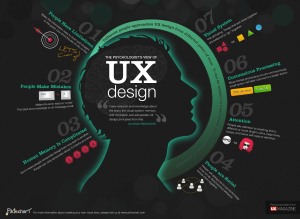The Modern Library, by Library Journal.
Wellington Public Library, New Zealand, began a new initiative to meet new customers. The idea they came up with was a book bike: Impromptu storytelling in the summer months along the beach front for kids and their families.
It provided really good feedback to the librarians and the families gave a positive reaction when they returned to the beach every week. It also gained some media attention, which was very positive for the library.
The librarians then took to twitter to take pictures and promote the book bike to their existing customers, after a while they would have queue’s form around them for borrowing books, and signing up for membership.
The library then developed the new mobile checkout software for the Ipad where they could issue new cards and new books to patrons while out and about with the book bike.
It ordered them to think outside the box, libraries need to go outside the library walls and engage with others, we need to show and tell people the value of the services that public libraries offer.
Especially for rural libraries, communities are vital and you need to give excellent service to the older community within rural towns and villages.
Networking Relations, by Tracy Z. Maleeff.
Professional relationships, need to be created, maintained and sustained. This process is a marathon, not a sprint, take your time and practice.
Networking is not to schmooze people there is no gain, you have to give and take, don’t always expect something from the relationship.
When you meet someone for the first time always say to yourself “What can I do for this person?”
People have various excuses for not developing networking relations, like being an introvert and extrovert, networking is a not a personality trait, you develop these skills.
Create a network:
People well known in the library world have a duty to new professionals, so they will want to get to know you. Find out who these people are, make that connection through twitter and build from there. Follow this through at a conference; find them, introduce yourself and talk to them.
The reason why you want to connect with that person is the reason why you want to talk to them. Pick a topic you are both interested in and go with that. If you do find yourself in a situation where you don’t know the person, start talking about the where you are, be it Dublin or Dubai, it helps break the ice and you will find it easier to navigate the conversation back.
If you are nervous about speaking with people in these situations practice in other situations, book events always have a Q&A session at the end, go in with a question and be sure to be kind and gracious, the author will remember you later when you are getting your book signed! Conferences also have Q&A sessions, find out who is on this panel, research them, research the program, and go in with a few questions.
Maintaining a network:
The most important element when maintaining a network is to keep in touch with people you meet along the way. Through all the social media routes, find the people who are active on these sites and keep connecting, and engaging. It will help you as you move through your career, these are professionals you can call on for advice, don’t be afraid to pick up the phone, or meet them for coffee.
More importantly be empathetic, you need listen to people and be kind. If you find that someone in your network is having a really busy and stressful time, reach out and give your advice, find solutions to their worries. This could be as simple as a funny article about a recent political blunder, but they might just need a laugh.
Be in the know! Know what is going on out there, yes there is a lot, so focus on the topics you like. Also, know your library sector. However always be interested in other sectors, at the end of the day we are all library and information professionals.
Sustaining a network:
Be an interested inquirer, as librarians we all love learning. So by sustaining these networks use the opportunities that will arise. Collaborations could include:
- conference presentations,
- journal papers,
- webinars,
- blog posts,
- committee duties,
- Twitter chats,




